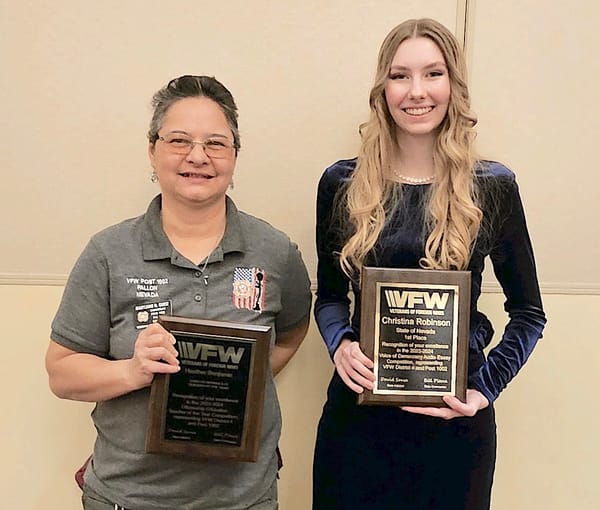Prison system’s approach to inmates’ money bewilders legislators

By Michael Lyle, Nevada Current
This story was originally published by Nevada Current.
A fiscal note attached to legislation that caps how much money prison officials can withdraw from an inmate’s accounts confused lawmakers Wednesday.
State Sen. Melanie Scheible, who presented Senate Bill 22 to the Senate Finance Committee, said the bill would cap the prison system’s share of money sent to inmates by friends and family at 25%, and money earned through jobs at 50%.
But the Nevada Department of Corrections said the proposal would cost them $3 million over two years.
NDOC officials argued Wednesday that because inmate deductions must go toward victim restitution first, the department wouldn’t be able to take as much money from inmates to cover things like prison administration fees or room and board and would have to use general funds to cover any money lost.
But the fiscal note assumes every inmate owes restitution, while only 17% of inmates owe restitution.
“What we’re seeing in this fiscal note is a huge amount of money loss when it really should only be a small percentage of the populations who are affected by these caps,” said Nick Shepack, a policy fellow with the ACLU of Nevada.
Senate Majority Leader Nicole Cannizzaro said she didn’t understand why there would be an impact.
State Sen. Julia Ratti also questioned “if it’s 17%” who is affected, “why would this be applied to the other 83%?”
NDOC officials said their goal is to make the accounting consistent.
The committee took no action on the legislation.
Inmate deductions drew ire from civil rights groups and families of the incarcerated after NDOC director Charles Daniels implemented a new policy in September 2020 that garnished inmates’ accounts by at least 80%.
“When people who are not in custody are sending $100, $200, $300 to their loved ones who are currently incarcerated, that person does not get $200 cash,” Scheible said. “They get $200 on their books to buy ramen at the commissary. To buy deodorant at the commissary. They don’t just get $200. They get $200 minus whatever the Nevada Department of Corrections takes for restitution, for fines and fees or an administrative cost. We were finding that inmates were getting $10 when their families deposited $100.”
One woman testifying Wednesday said her friend, who is incarcerated, made $50 in wages but after NDOC deducted for room and board, capital funds, and savings and he was left with $1.17.
The Nevada Board of Prison Commissioners temporarily suspended the policy in October to assess the policy.
In January, Gov. Steve Sisolak, who sits on the Board Prison Commissioners alongside Attorney General Aaron Ford and Secretary of State Barbara Cegavske, rescinded the regulation altogether.
The legislation, which was initially proposed by NDOC, was designed to address money seized from inmate accounts.
“NDOC was not prepared to agree to a particular cap in statute and would have preferred to do that through regulation,” Scheible said. “That presented some problems because my committee wanted to see more specific deductions so inmates incarcerated within the Nevada Department of Corrections could understand better what they could expect from their accounts.”
She added the amended bill with specific caps was a “hard-won consensus” between various groups including Return Strong, a prison advocacy group that works with families of the incarcerated, and the NDOC.
But groups worried the fiscal note was intentionally inflated.
“Since Director (Charles) Daniels has taken leadership at NDOC, there have been repeated problems with his integrity and truthfulness in his presentation on issues,” said Jodi Hocking, the founder of Return Strong who testified in support. “We just had a whole conversation on them presenting a fiscal note that included every single person instead of the actual 17% of people who are impacted.”
When she tried to provide examples of Daniels previously providing bad information in the past year, state Sen. Chris Brooks, who chairs the committee, cut off her testimony.
Lawmakers in previous committees have questioned Daniels’ actions and the director has also previously provided inaccurate information.





